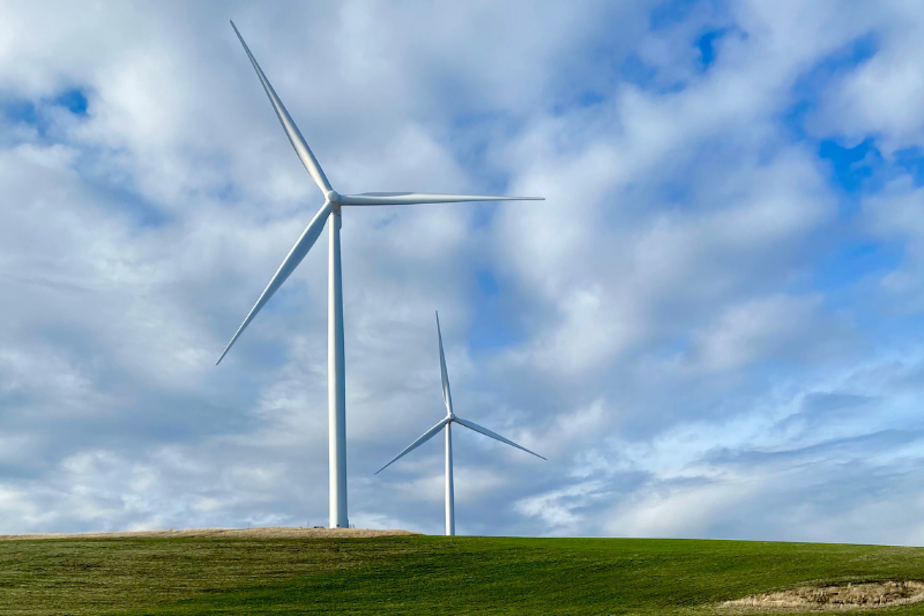Objections hamper plans for Tri-Cities wind farm, other renewable energy projects in Washington state

When it was proposed in 2021, the Horse Heaven Hills wind farm was set to be the largest wind farm in Washington. Hundreds of turbines — potentially taller than the Space Needle — were planned on a range of rolling hills outside the Tri-Cities.
But renewable projects in this area of the state have faced opposition from locals and environmentalists, meaning a potential blow to the state’s long-term renewable energy goals.
As proposed, the wind farm project would have provided close to 5% of the state's long-term renewable energy goals. But part of the controversy is a variety of stakeholders concerned with the site.
That includes the Yakama Nation, to whom the area is sacred; locals in the Tri-Cities upset with development on the open range; Benton County officials who see the state approval of the project as trampling on local authority; and impacts to the nesting areas of the locally endangered ferruginous hawk.
"Like any bird of prey, they're really interesting creatures," said Conrad Swanson, climate reporter for The Seattle Times, in a recent story on the issue. "They've been known to return to their nests, even if they're empty for decades after the fact — and so any building of turbines could endanger that."
Any determinations on the size of the project are made by the Energy Facility Site Evaluation Council (EFSEC), and indications so far point to a downsizing of the facility. Swanson says the final project will likely be half the size it is now, meaning the total energy output will be 2.5% or less of the state's total renewable energy goal of an estimated 22 gigawatts by 2030.
"If it is cut in half, it will no longer be the largest wind turbine project, and that really cuts into the state's goals," Swanson said. "I think we're behind the curve when it comes to meeting our renewable energy goals, and this is just another hurdle that any future similar large project like this would face."
Sponsored
When a decision from the energy council is made, the developer of the Horse Heaven Hills Windfarm, Scout Clean Energy, will make a decision on whether to build or not build the project. Its founder and CEO, Michael Rucker, told The Seattle Times that hiccups in renewable siting are making it too risky to develop in Washington.
Steven Cohen runs the masters and sustainability management program at Columbia University, and says renewable energy is at the center of tradeoffs between one set of goals and another.
"Climate is an urgent problem. It's in many respects the central problem we have right now. And it's actually the one we understand the best," he said. "But what about biodiversity? And what about problems where we do something that's irreversible?"
Cohen said, while setbacks to large-scale renewable projects can have serious impacts to climate goals, the issue emphasizes the need for technological advancement and the decentralization of local power grids — for example, expanding the use of solar and wind into urban spaces to maximize the opportunities for generating renewable energy.
To balance the demand of future energy goals, he said a multi-pronged approach is needed.
Sponsored
"Why don't we put some of these windmills on top of big box stores?" Cohen asked. "Why aren't we thinking about the parking areas there? What happens is the companies develop, find these big pieces of land, they're relatively cheap, and it feeds into the business model of highly centralized electric bill development. "
Swanson added that energy storage — not necessarily generation — is a critical component of expanding the energy grid in the region, and that expanding the transmissibility of power is an area of focus for the Bonneville Power Administration.
Listen to the full Soundside segment by pressing play on the icon at the top of this story.





